Only 23% of Wolt couriers have heard about EU’s Platform Work Directive – pan-European study shows platform workers know what they want, but are not being heard

This is what’s happening: The EU is working on a piece of legislation, the Platform Work Directive, that will have a major impact on how 28 million platform workers in Europe – including more than 100 000 Wolt courier partners – live and earn.
The Directive seeks to improve working conditions in the platform economy by introducing new criteria to help determine the correct work status, allowing platforms to offer better protections to self-employed partners, and introducing algorithmic management obligations.
To help understand how people working as Wolt courier partners feel about the proposed law and about the way they use our platform, Taloustutkimus, one of the largest market research companies in the Nordics and part of the World Independent Network of Market Research, carried out a survey in 15 countries across Europe.
Here are some key highlights from this first-of-its-kind survey:
- 6,811 couriers answered the survey, giving extremely interesting insights into how they feel about their work and the EU directive.
- Only 23% of couriers in the EU have heard about the Platform Work Directive.
- 40% feel like their opinions are heard by EU policymakers, and even less (34%) feel like local policymakers listen.
- A clear majority (82%) agree that the Platform Work Directive should not change anyone’s status from self-employed/contractor to employed against their will.
- Almost four out of five (78%) would consider to stop delivering if the law forced them into employment without flexibility (i.e. ability to choose their own hours, tasks, vehicle or routes).
- Two out of three (65%) agree that the freedom of being a contractor is more important than the security that comes with being an employee.
- Almost three out of four (71%) choose to work as a Wolt courier partner because they prefer this over any other work opportunities.
78% would consider quitting if flexibility disappeared – a vast majority want better protections for self-employed
To understand what courier partners want and hope from the new law, we asked them to answer a series of claims on a scale from 1 (=disagree fully) to 5 (=agree fully). Ahead of answering the claims, everyone was shown a short description of what the law is(*) to make sure everyone had the basic facts.
One of the claims focused on the freedom to choose when to work, which tasks to accept and the ability to work for any other company. All three are fundamental elements behind the flexibility that comes with being self-employed.
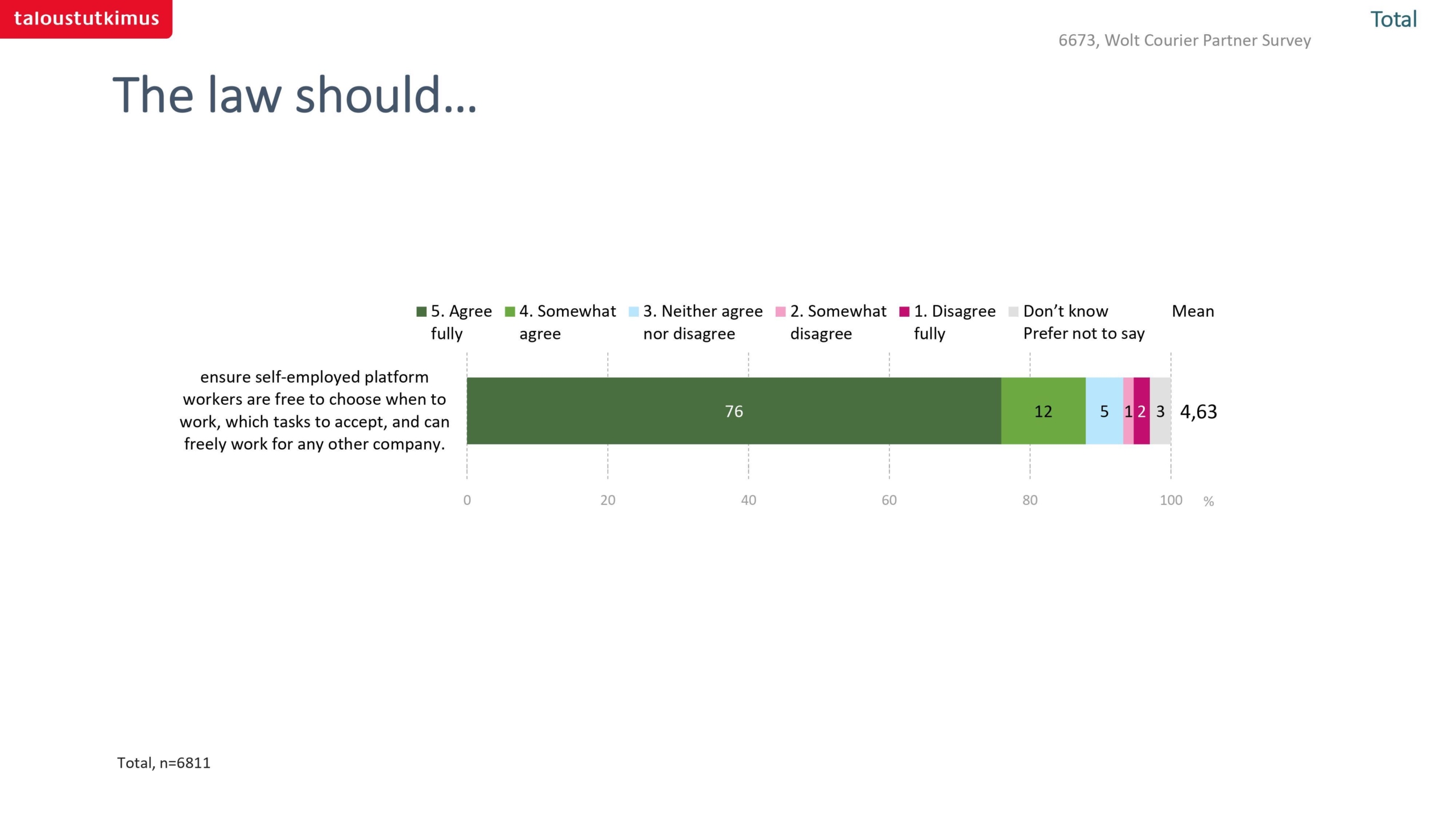
The above graph shows that 88% agreed that the Platform Work Directive should protect elements of freedom and flexibility that they currently have as self-employed. 3% disagreed, 5% were neutral and 3% preferred not to say.
Besides freedom and flexibility, couriers would like the law to unlock better protections for the self-employed.
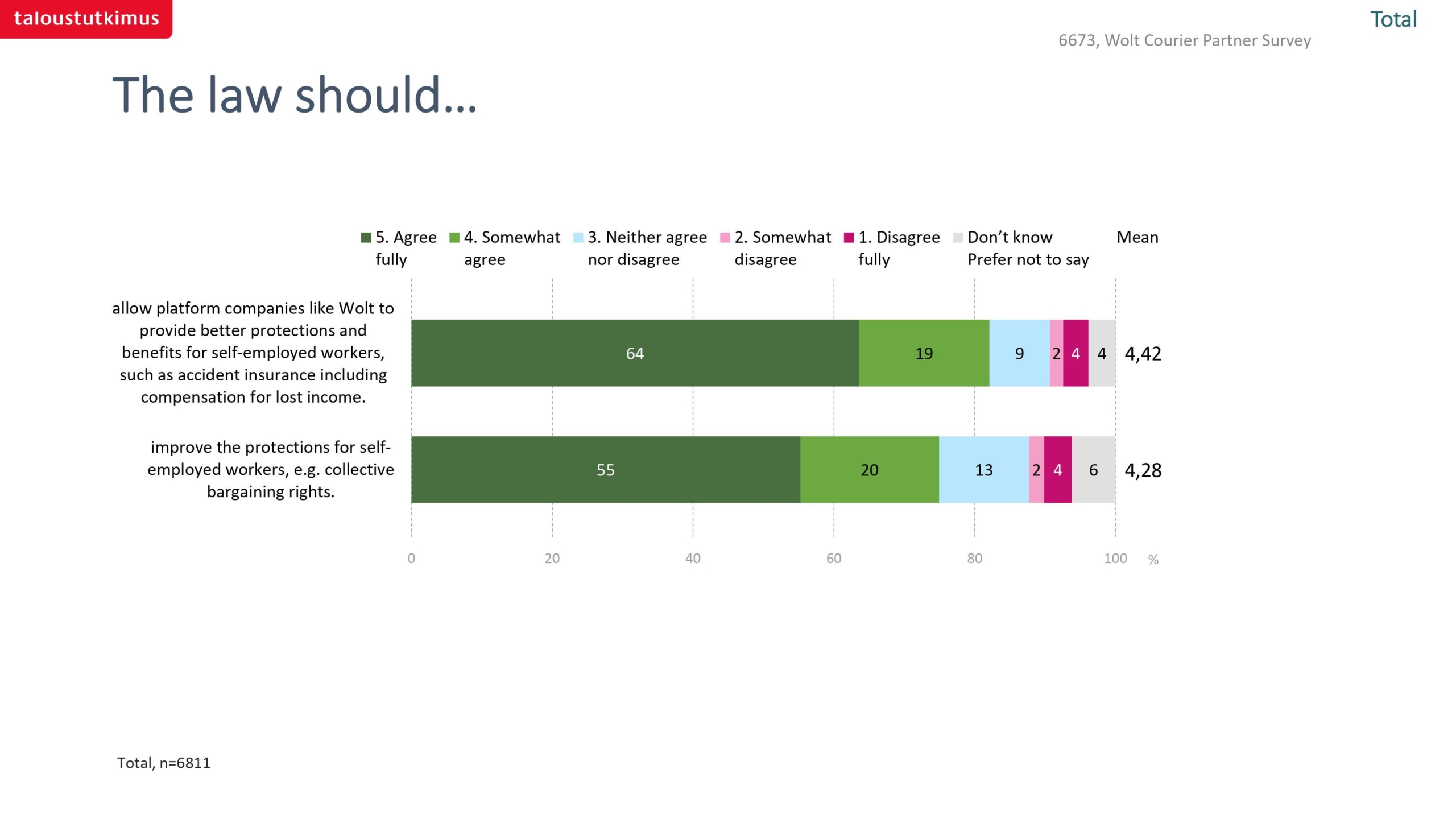
When asked if the law should require platforms to employ platform workers and control their work more, 41% were against it. 36% agreed, while 23% were neutral or did not want to say.
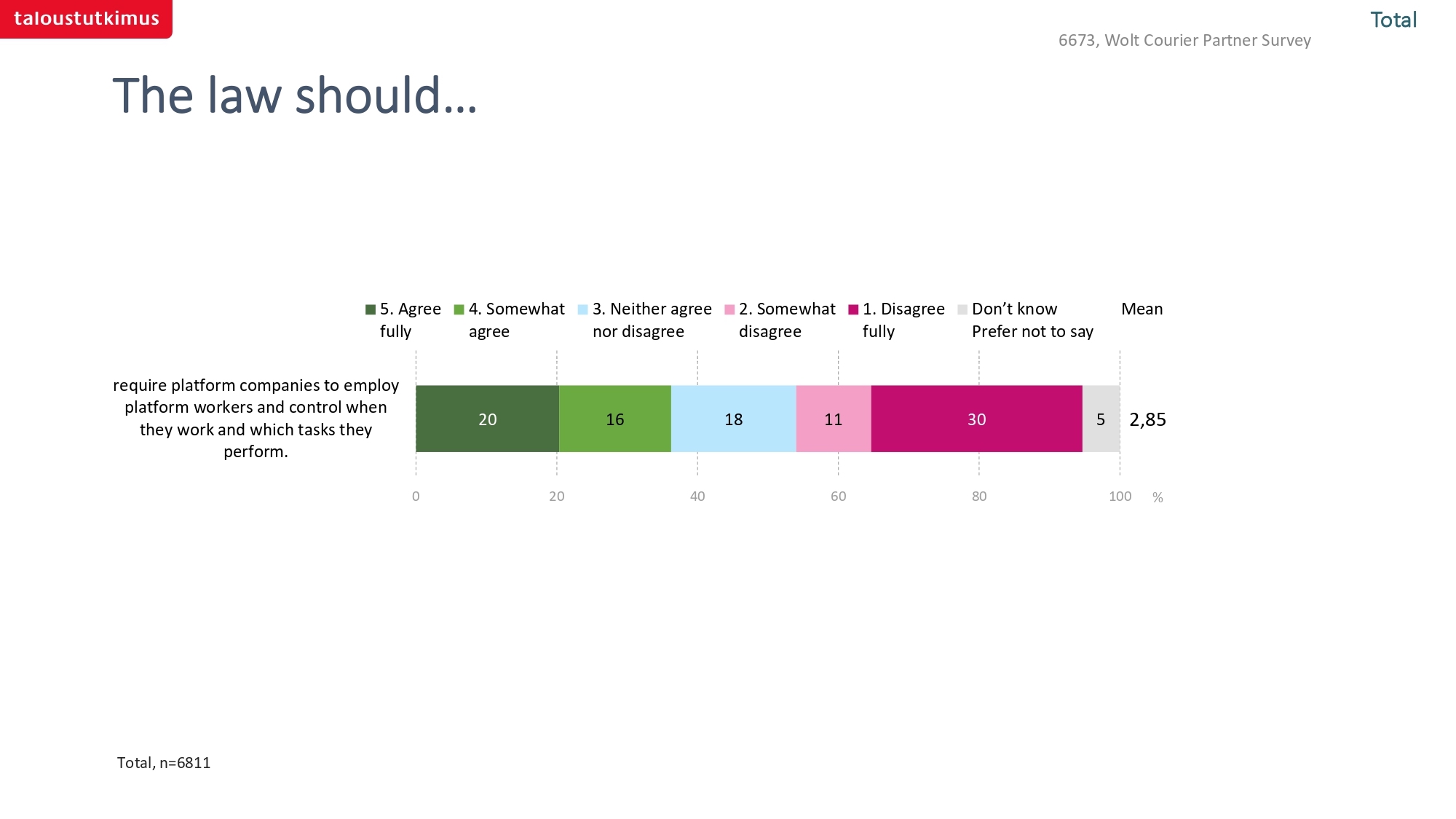
At the same time, 82% agreed that the law should not force anyone to change their status from contractor/self-employed to employed against their own will. Moreover, 78% said that they would consider quitting Wolt and platform work if they were to be forced into employment without their current flexibility.
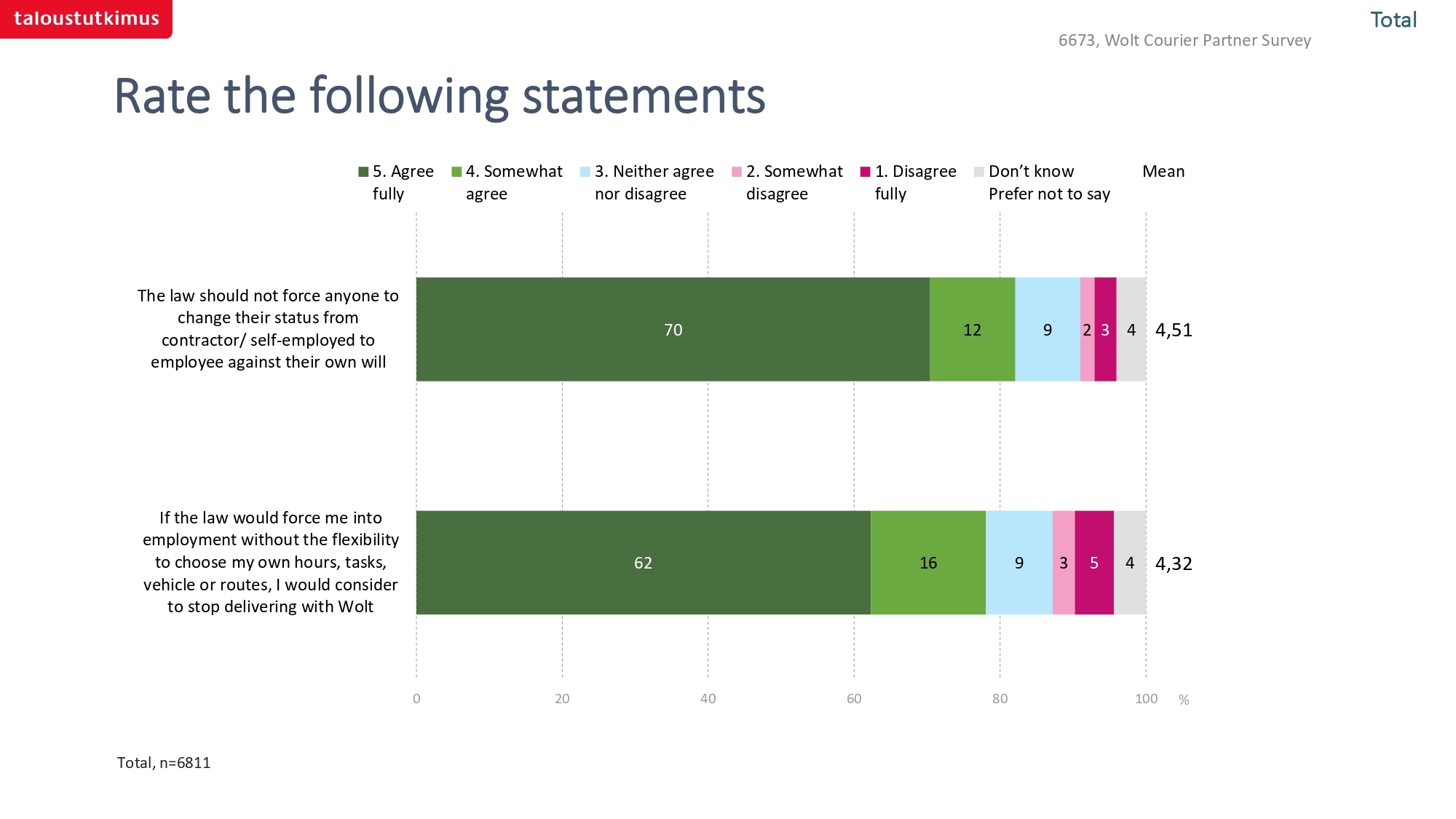
65% prefer freedom over security of employment, less than half feel policymakers listen – platform workers’ voices need to be better heard
So what do we make of the results?
First and foremost: The results show that there’s a big gap between platform workers and policymakers currently. In fact, only 23% had heard about the Platform Work Directive before we showed an explanation of what it is. Although 23% is better than nothing, this illustrates the general democratic issue that citizens are not informed about the laws that may impact them.
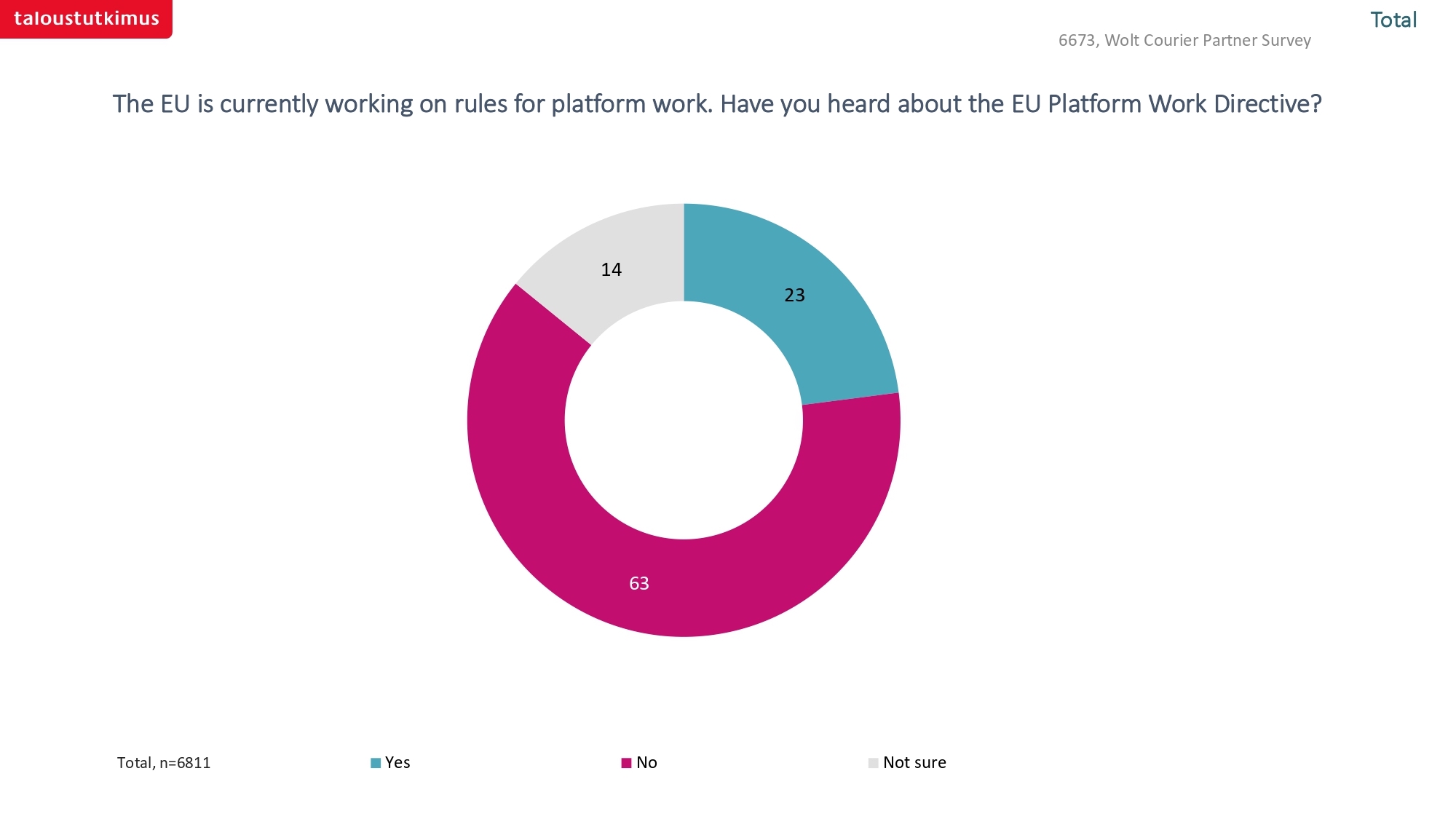
It’s no surprise that most respondents felt unheard by policymakers.
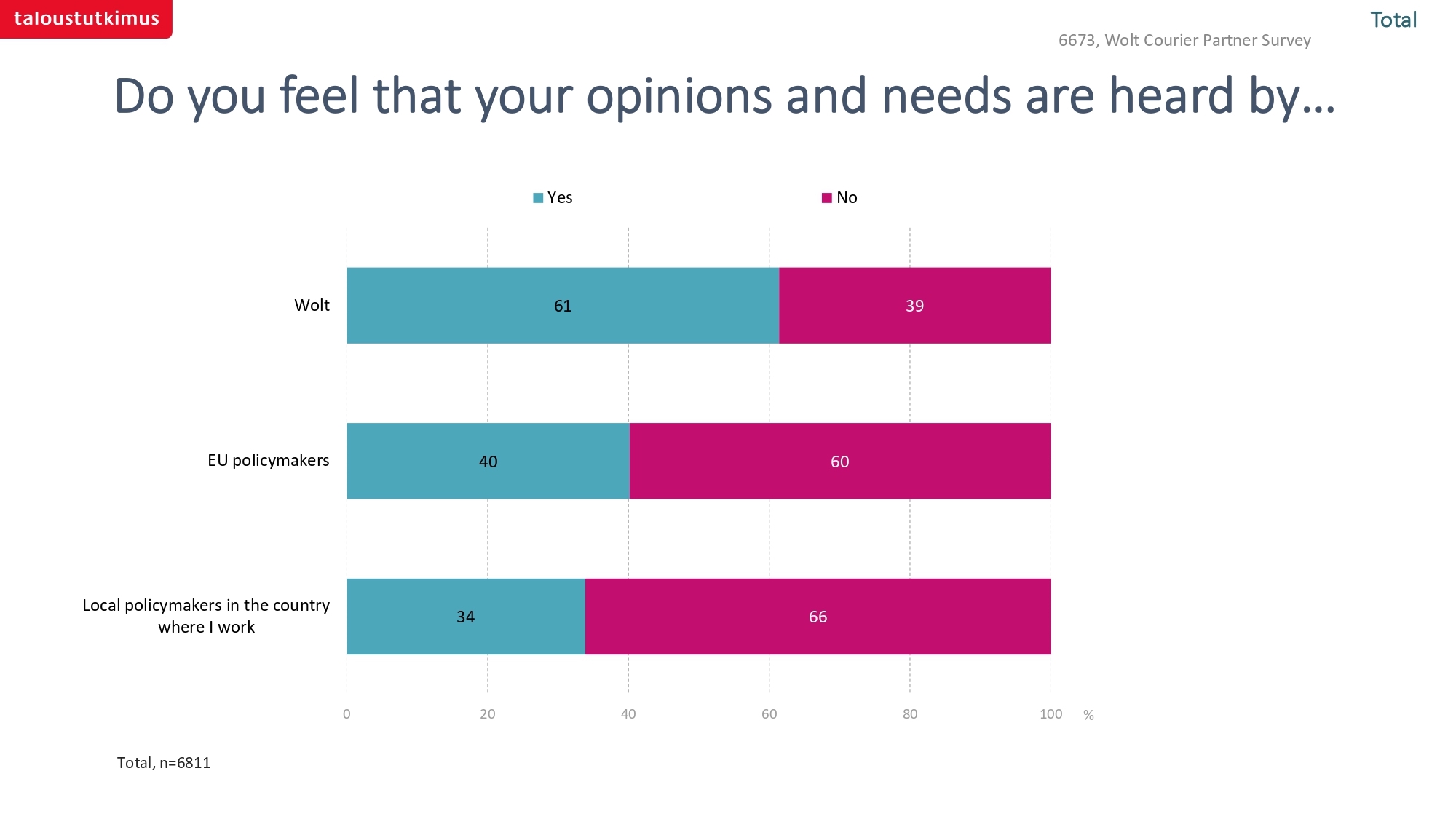
We see the EU’s initiative as a huge opportunity to bring long-awaited clarity across Europe and improve platform work for everyone. At the same time, to be truly successful, the directive needs to reflect what the platform workers themselves want.
Secondly: The survey seems to support a view that forcing courier partners into rigid employment relationships against their will is not the right way to ensure their access to better protections.
The survey shows clearly that elements of freedom and flexibility are massively important to couriers themselves. In fact, 65% prefer them over the security that would come with employment.
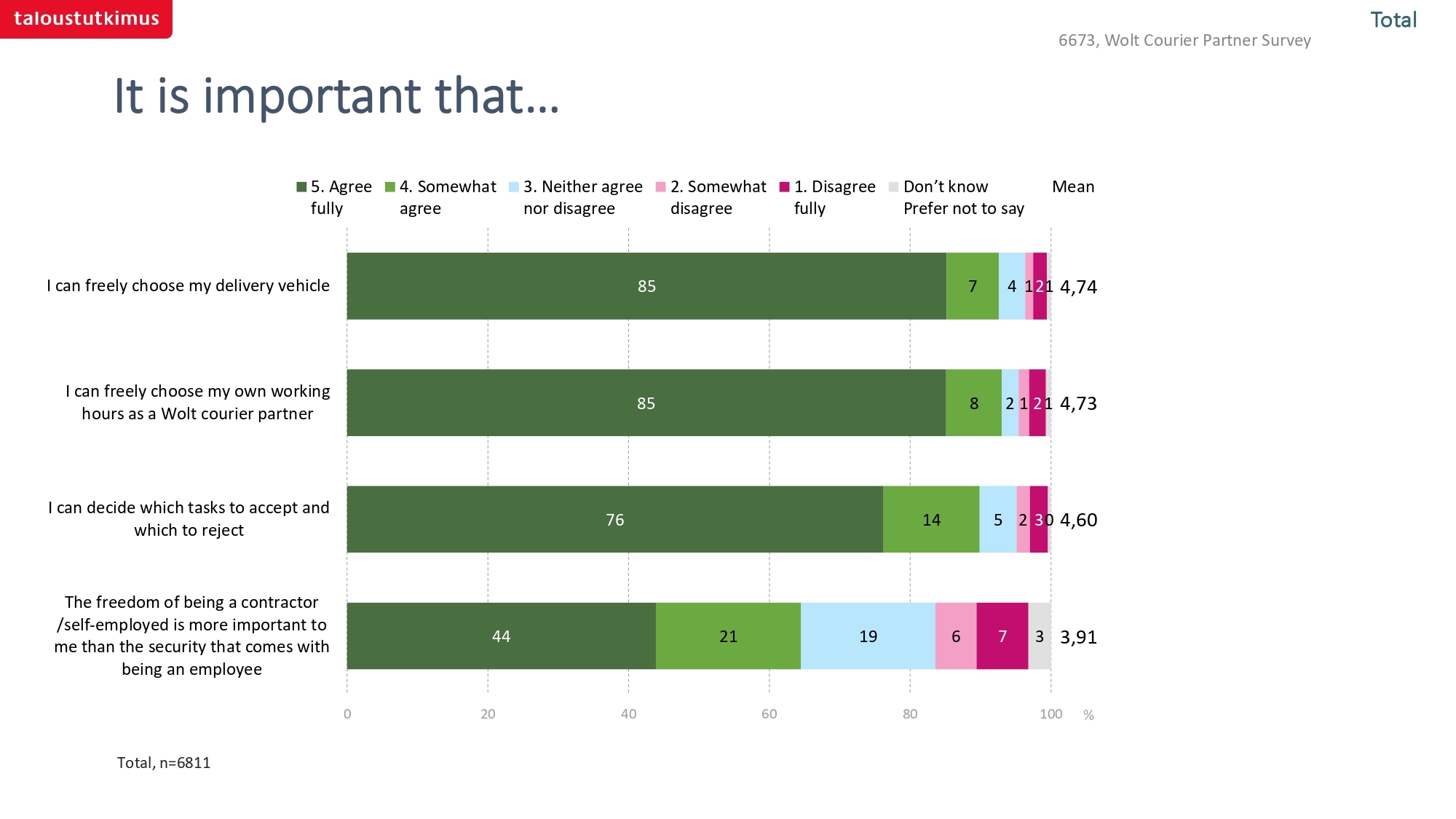
The survey in short
- The aim was to understand what Wolt courier partners in the EU feel about the proposed Platform Work Directive and about platform work in general.
- Taloustutkimus carried out the survey between February and March, 2023. The method for the study was online interviews. Taloustutkimus programmed the survey questionnaires, and Wolt sent the survey links to the couriers. All responses were saved and filed in Taloustutkimus’s server directly.
- We sent out the survey to couriers who had made at least one Wolt delivery in the past three months in Croatia, Cyprus, Czech Republic, Denmark, Estonia, Finland, Greece, Hungary, Latvia, Lithuania, Malta, Poland, Slovakia, Slovenia, and Sweden. Everybody had an equal possibility to answer the survey and their responses were anonymous. It received 6,811 responses.
Survey demographics in a nutshell:
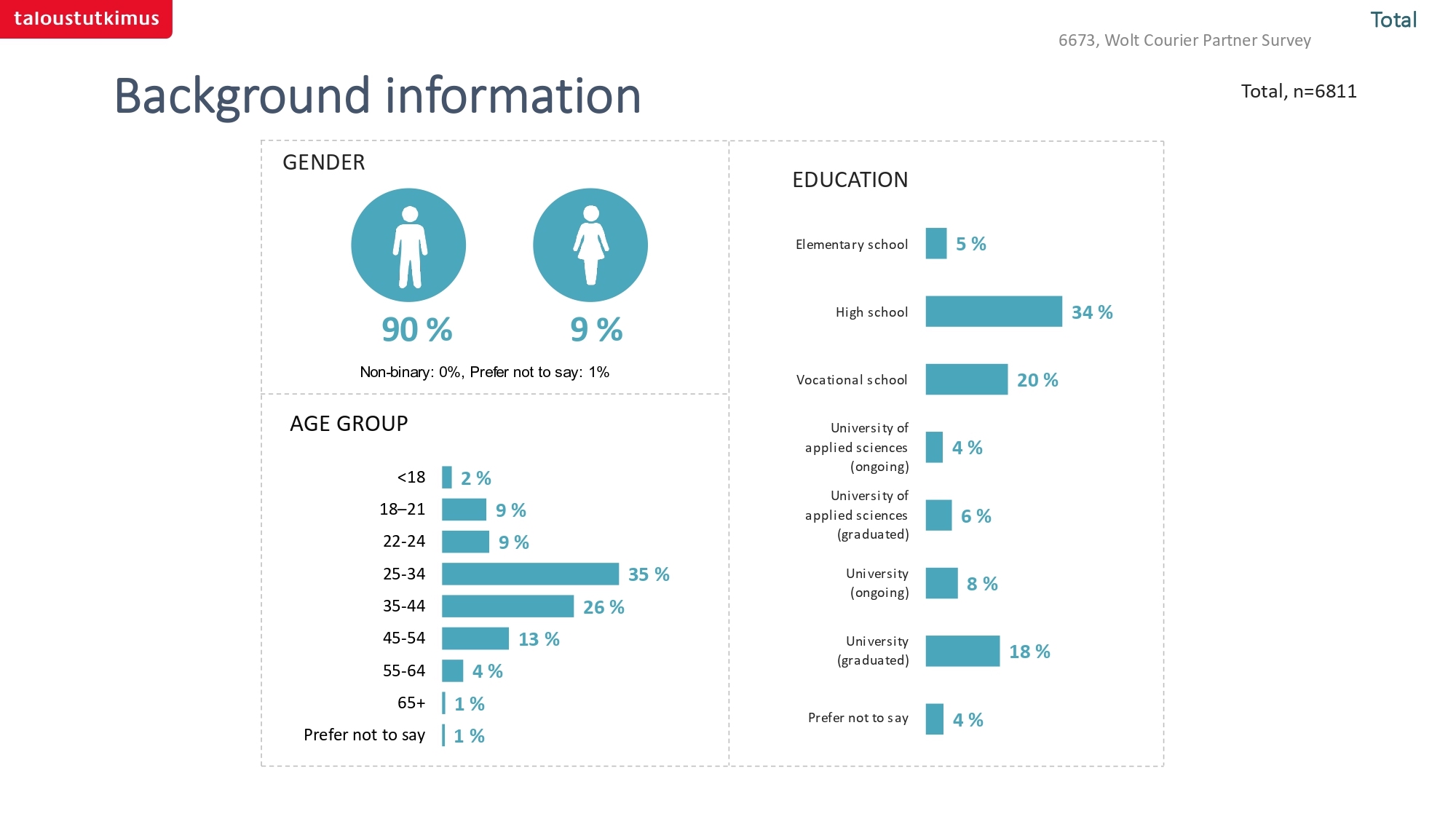
For more insights about the method, please reach out tutkimus@taloustutkimus.fi
* “The Platform Work Directive is a new law proposed by the EU aiming to improve the working conditions of platform workers (both contractors/self-employed and employed). The proposal includes EU-level criteria that would be used for evaluating if a person is genuinely a contractor/self-employed or actually should have an employment relationship with the digital labour platform (such as Wolt). It also establishes a responsibility for platforms to be more open towards platform workers about how the technology and algorithms that they interact with function.”




